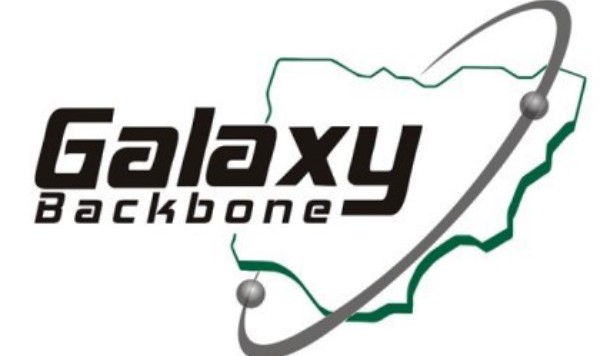Telecom
NCC, Galaxy Backbone Strengthen Ties on Digital Connectivity

Nigerian Communications Commission (NCC) recently visited the headquarters of Galaxy Backbone Limited in Abuja to strengthen inter-agency synergy and collaboration towards deepening connectivity for businesses and public institutions in the country.
Led by Prof. Garba Danbatta, executive vice chairman (EVC), the NCC team, compromising senior management staff of the Commission, also embarked on a tour of a Tier III National Data Centre built by Galaxy Backbone in Federal Capital Territory (FCT), Abuja.
Speaking during the visit, Danbatta said that the Commission has, so far, facilitated the building of 42,000 kilometer of fibre links across the country inclusive of some 4,000 kilometres built by Galaxy Backbone, which is a licensee of the NCC.

The EVC, however, said that while the Federal Government plans to achieve 127,000 kilometre of fibre across the country in its Next Level agenda, the licensing of Infrastructure Companies (InfraCos), the capital expenditure (CAPEX) they are going to make and the counterpart funding to be provided by the Commission would create additional 30,000 kilometre of fibre, bringing total fibre laid in the country to 72,000 kilometre in the next few years.
While stating that counterpart funding would be provided by the Commission to InfraCo licensees upon attainment of deployment milestones in their respective geo-political zones, Danbatta said “the InfraCo project is a project of profound transformational significance and we are positive that the role being played by Galaxy Backbone in fibre deployment and other infrastructure build will complement the Commission’s efforts towards fast-tracking the achievement of the target of 127,000 kilometre of fibre by the current administration.”
Danbatta, who restated the commitment of the NCC in ensuring pervasive broadband availability, accessibility and affordability in the country, affirmed that the visit to Galaxy Backbone was conceived in the spirit of engendering increased synergy among the various agencies under the coordination of the Hon. Minister of Communications, Dr. Isa Ali Pantami, robust enough to deepen the frontier of digital connectivity to support the economy.
Meanwhile, Yusuf Kazaure, chief executive officer, Galaxy Backbone, who conducted the EVC and his team to strategic locations within the data centre facility, including the Network Operating Centre (NOC), National Shred Services Centre (NSSC), Telepresence Room, Data Centre Room and the Power Room, appreciated the Commission for the visit, saying it is timely and promising. “As Galaxy Backbone, it is a visit we have been yearning for. It is for us to create a synergy as industry agencies towards achieving the mandate of the Ministry of Communications on digital transformation, “ he said.
Telecom
Airtel Buys Back 66,089 Units of Own Shares

Airtel Africa announced on Tuesday, that it has purchased about 66, 089 of its ordinary shares of $ 0.50 each from Barclays Capital Securities Limited.

The telecoms firm said the move is pursuant to the authority granted by its shareholders as part of its share buy-back programme, as earlier announced on 23 December 2024.
The purchase made on Monday, March 10, contained an aggregate of 66, 089 ordinary shares at a price of N143.70 per share.
The highest price paid was N144 per share, with a volume-weighted average price of N143.96 paid per share.
Since the commencement of the share buy-back programme announced on 23 December 2024, the company added that it has purchased 16,750,765 ordinary shares in aggregate, at a volume-weighted average price of 120.8955 GBp per ordinary share.
Telecom
Mobile Ecosystem to Add $11tn into Global Economy by 2030

The mobile ecosystem continues its upward trajectory, with projections that it will contribute $11 trillion, or 8.4% of global gross domestic product (GDP), in economic value by 2030.

The ecosystem currently generates around 5.8% of global GDP, which is equivalent to $6.5 trillion of economic value added. This is one of the highlights from the GSM Association’s (GSMA’s) recently released Mobile Economy Report 2025, which was authored by GSMA Intelligence, its research arm.
The GSMA categorises the mobile ecosystem into three areas: mobile operators, infrastructure and equipment, and content and services.
Mobile’s contribution to the global economy is being driven by several factors, it states. These include countries around the world increasingly benefiting from improvements in productivity and efficiency brought about by the increased take-up of mobile services and Digital technologies, including 5G, internet of things (IOT) and artificial intelligence (AI).
“Mobile technologies and the ensuing digital transformation will boost the economy by nearly $11 trillion in 2030. Much of this will materialise in regions with a higher integration of digital technologies in enterprises, including North America, Europe and Asia Pacific.
“Towards the end of the decade, low- and middle-income countries (LMICs) are expected to realise an increasing proportion of economic benefits, as mobile technology achieves greater scale and widespread adoption. However, current adoption of more advanced technologies in LMICs is lagging adoption in high-income countries.
“Mobile technologies are expected to benefit all sectors of the global economy, although some industries will benefit more than others due to their ability to incorporate the latest wave of digital technologies, including 5G, IOT and AI.”
The report shows that 58% of the world’s population used mobile internet at the end of 2024, representing 4.7 billion users – an increase of 2.2 billion since 2015.
This number is expected to rise to 5.5 billion users (64%) by 2030, it notes. However, the GSMA points out that the growth rate at which people are adopting mobile internet has slowed in recent years.
“Around 110 million people started using mobile internet in 2024, which is slightly down on the 2022 and 2023 figures, and significantly lower than growth in 2015 to 2021, when more than 200 million people became connected each year.
“Of the 3.4 billion people who remain unconnected to mobile internet, almost 90% live in an area already covered by mobile broadband, but do not use mobile internet. With mobile internet adoption outpacing network expansion, this usage gap has continued to shrink, standing at 38% by the end of 2024.
“However, the usage gap remains nine times the size of the coverage gap, and is over 45% in Asia Pacific, the Middle East, North Africa and Sub-Saharan Africa.”
According to the report, by 2028, 5G adoption will surpass that of 4G adoption. This, as 5G connections worldwide surpassed two billion at the end of 2024, with expectations that 5G will account for over half (57%) of total mobile connections in 2030.
“The share of mobile connections on 4G is beginning to wane as 5G commercialisation gathers pace. As of December 2024, 305 operators in 121 markets had launched commercial 5G mobile services. More countries are expected to follow, with 80 operators from 60 markets announcing launch plans for mobile 5G services in the coming years.
“With 2G and 3G networks accounting for less than 20% of mobile connections worldwide, legacy networks are being phased out in many regions. By the end of November 2024, a total of 152 networks had been shut down and another 131 networks were planned to be shut down by 2030.
“Asia Pacific and Europe lead the way, accounting for around 70% of network sunsets to date. Network sunsets enable more efficient spectrum use, while also reducing energy consumption.”
According to the GSMA report, the number of 5G connections worldwide surpassed two billion at the end of 2024, accounting for more than half of mobile connections in North America, Greater China and developed Asia Pacific.
“Growth will intensify in the second half of this decade, with 5G adoption set to exceed 80% in leading 5G markets by 2030.
“It is still early days for 5G adoption in most emerging 5G markets. However, 5G adoption will gather pace over the next few years with the arrival of cheaper 5G smartphones and new spectrum assignments.
“As a result, 5G is expected to account for almost 40% of total mobile connections in LMICs (excluding China) by the end of the decade, equivalent to 2.3 billion connections.”
Telecom
MTN Commits $2Bn to ITU’s Partner2Connect Initiative

MTN Group has committed $2 billion to the International Telecommunications Union’s (ITU) Partner2Connect initiative, bringing the total funds pledged to $73 billion.

The announcement was made during the ongoing Mobile World Congress (MWC 2025) in Barcelona, Spain.
Partner2Connect, spearheaded by the ITU, is a global initiative aimed at enhancing universal digital access, strengthening infrastructure, and fostering meaningful connectivity.
Doreen Bogdan-Martin, secretary-general, ITU, highlighted the significance of these commitments, stating, “Expansive digital infrastructure highlights how much humanity values and depends on meaningful connectivity. These new pledges bring us closer to delivering sustainable digital transformation to everyone, everywhere.”
According to the ITU, MTN Group has shown a strong commitment to investing in Africa’s digital future, spending approximately $2 billion annually on capital expenditures across its markets over the past five years.
Similar investments are planned over the next five years, focusing on expanding and improving voice and data networks to bolster connectivity and drive digital inclusion.
The ITU also announced a $2 billion pledge from Globalstar to expand its low-Earth orbit satellite network, providing seamless, energy-efficient connectivity solutions for remote regions and underserved areas.
These efforts will include direct-to-device (D2D) and IoT connectivity solutions.
As ITU celebrates its 160th anniversary, the UN agency has emphasised its dedication to bridging the global digital divide.
An estimated 2.6 billion people worldwide remain offline, according to ITU data.
The agency has called for $100 billion in commitments by 2026 to fund projects supporting global digital transformation, particularly in hard-to-reach communities.
With over 1,000 pledges spanning 147 countries, Partner2Connect is working toward ITU’s vision of a digitally connected and inclusive future.
Current estimates suggest $1.6 trillion is required for global connectivity hardware alone, with the majority of resources needed in developing nations.
The funds pledged by MTN Group and other partners are set to strengthen digital infrastructure, enhance connectivity in underserved areas, and accelerate digital innovations to support economic and social growth worldwide.

 E-Business2 days ago
E-Business2 days agoGBB to Train Over 300 Civil Servants on Govmail

 Telecom2 days ago
Telecom2 days agoST Team Partner Proxy Coding School to Launch Free Tech Skills Initiative

 E-Business1 day ago
E-Business1 day agoKaspersky Uncovers Sophisticated Deception Campaign using DeepSeek AI as Bait

 Broadcasting2 days ago
Broadcasting2 days agoNAFDAC’s Fight Against Counterfeit Drugs Reaches New Heights with Ibadan Raid

 Telecom1 day ago
Telecom1 day agoTelegram Introduces New Features to Address Unsolicited Messages

 Telecom1 day ago
Telecom1 day agoMTN Commits $2Bn to ITU’s Partner2Connect Initiative

 Telecom1 day ago
Telecom1 day agoMTN Nigeria Reaffirms Support for Grassroots Sports During Edo State Visit

 News1 day ago
News1 day agoIgniteher BootCamp: A Pathway to Women Empowerment and Economic Growth



























